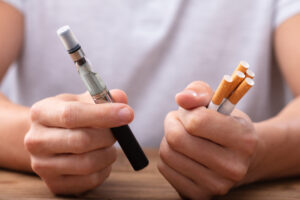If you find yourself craving alcohol, building up a tolerance to its effects or drinking in spite of negative consequences, there could be a problem. It’s estimated by the NHS that around 9% of men in the UK and 3% of UK women show signs of alcohol dependence, commonly known as alcoholism. Let’s look at the signs and find out what we can do to help.
Signs and symptoms of alcohol dependency can be physical or psychological:
- Drinking alcohol for one of two reasons: to create positive feelings (e.g. relaxation, euphoria) or to avoid negative feelings (e.g. anxiety, loneliness, stress).
- Difficulty relaxing without alcohol.
- Drinking more frequently or for longer than planned.
- Drinking in secret and/or alone.
- Struggling to limit alcohol consumption. Drinking a full bottle just because it’s open or struggling to stop drinking once started.
- Wanting to cut down but struggling to implement changes.
- Performing poorly at work/college.
- Drinking to manage hangovers.
- Experiencing cravings for alcohol.
- Needing to drink more alcohol to feel the desired effects.
- Experiencing withdrawal symptoms when not drinking such as:
- sweating
- nausea
- shaking
- confusion
- feeling irritable and agitated
- headaches
- Experiencing mood swings and short-term memory loss.
- Struggling to concentrate and complete tasks at work/home.
- Time spent on hobbies reduced as more time is spent consuming alcohol
- Becoming isolated from friends and family.
People with alcohol dependency are often in denial about it. They may underestimate their intake, downplay negative effects and consequences, intimate others concerns are exaggerated or blame their drinking on others.
Why does dependency occur?
- It can run in families, from both a genetic point of view and your family’s attitude to, and relationship with, alcohol.
- Highly stressful and emotional life events like losing a loved one, a job or home can be a trigger.
- People who are alcohol dependent are more likely to suffer from psychiatric disorders than others. Conditions like depression, anxiety and post-traumatic stress disorder are frequently associated with alcohol dependence.
The effects of alcohol dependence are far reaching and it can be hard to recognise there’s a problem. It can cause tremendous health worries like high blood pressure, heart and liver disease and interpersonal issues at home and work too.
Ways to help
- Staying within the recommended guidelines of drinking less than 14 units a week is a great place to start.
- Deal with worries and stress in a different way. The answer is never at the bottom of a bottle. Try meditation, yoga, a run, journalling or a good old chat with a friend to share your feelings.
- Track your drinking. It’s a great way to be accountable and realistic about your alcohol consumption.
- Take a break. From regular days off, to a period of abstaining completely, taking a break from drinking is always a good idea. This helps your body recover and also means you get time to notice positive effects of not drinking, like increased energy and clarity of mind.
If you, or a loved one, find yourself worrying where your next drink is coming from, or feel unable to function without a drink, we advise you to chat things through with your GP. Be kind to yourself, alcohol dependence is a common issue that can make life tricky indeed. There’s lots of advice available to help you make positive changes.




